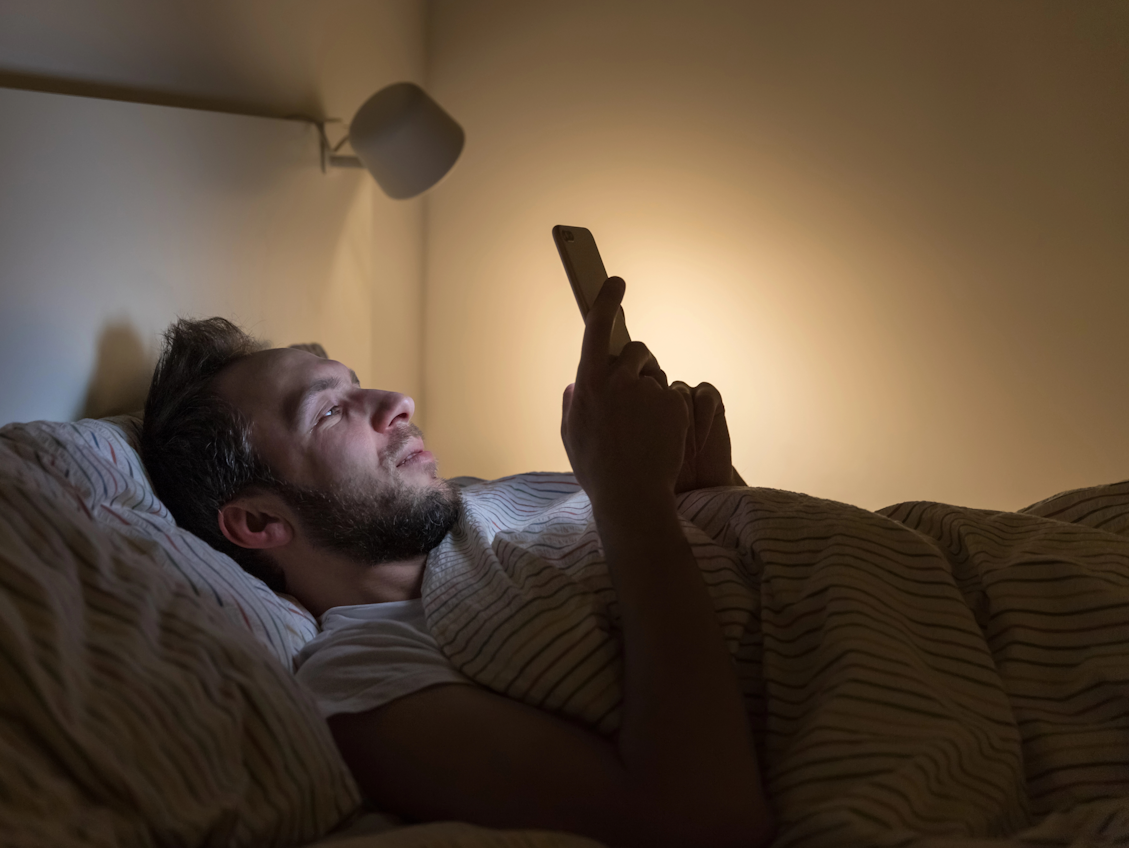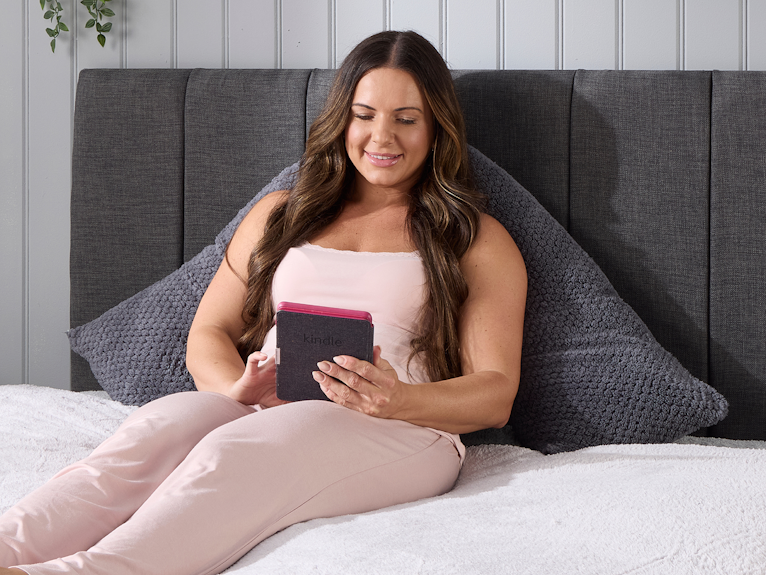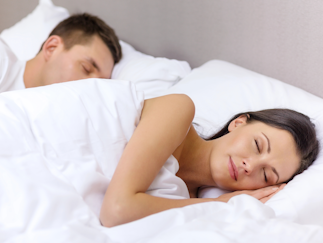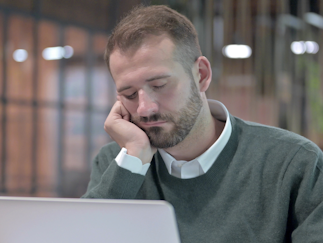13 Oct 2025

Bedtime Tech Habits: How Screen Use Before Sleep Impacts Rest
02 Oct 2025
Your nightly scroll through social media or binge-watching sessions might feel like the perfect way to unwind, but these habits could be sabotaging your sleep quality. The blue light emitted from phones, tablets, and televisions interferes with your body's natural production of melatonin, the hormone responsible for regulating sleep cycles.
Research consistently shows that using screens before bedtime leads to difficulty falling asleep, shorter sleep duration, and reduced overall sleep quality. The combination of bright light exposure and mental stimulation from digital content keeps your brain alert when it should be preparing for rest. This disruption affects more than just how tired you feel the next morning.
Breaking free from problematic bedtime tech habits doesn't require eliminating all devices from your life. Simple changes to when and how you use technology in the evening can significantly improve your sleep patterns and overall wellbeing.
Key Takeaways
- Screen exposure before bed disrupts melatonin production and delays your natural sleep cycle
- Poor bedtime tech habits lead to reduced sleep quality and negative effects on physical and mental health
How Screen Use Before Sleep Disrupts Rest
Screen use before bedtime interferes with your body's natural sleep mechanisms through blue light exposure that suppresses melatonin production and disrupts circadian rhythms. This technological interference creates measurable sleep disturbances including increased insomnia symptoms and reduced overall sleep quality.
Role of Blue Light and Melatonin Suppression
Blue light emitted from screens significantly impacts your body's melatonin production. This hormone naturally increases in the evening to signal sleepiness to your brain.
When you expose yourself to blue light from phones, tablets, or computers before bed, your pineal gland receives mixed signals. The light tricks your brain into thinking it's still daytime.
Key effects of blue light exposure:
- Delays melatonin release by 1-3 hours
- Reduces total melatonin production by up to 23%
- Maintains heightened alertness when you should feel drowsy
The wavelength of blue light (approximately 480 nanometres) is particularly disruptive. Even brief exposure can suppress melatonin for several hours after you've put the device away.
Research shows that using screens within two hours of bedtime can reduce your natural melatonin levels substantially. This suppression makes it significantly harder to fall asleep naturally.
Impact on the Sleep-Wake Cycle and Circadian Rhythm
Your circadian rhythm operates on a roughly 24-hour cycle, coordinating when you feel alert or sleepy. Screen time before bed disrupts this delicate internal timing system.
Blue light exposure shifts your circadian rhythm later, a phenomenon called phase delay. This means your body's natural bedtime moves progressively later each night.
Connection Between Screen Time and Insomnia
Studies demonstrate a clear correlation between evening screen use and insomnia symptoms. People who use screens in bed report significantly higher rates of sleep difficulties.
Screen time before bed increases sleep onset latency—the time it takes you to fall asleep. This delay often leads to frustration and anxiety about sleeping, creating a cycle of sleep problems.
Consequences for Sleep Quality
Screen use before bed reduces both the quantity and quality of your sleep. You may sleep fewer total hours and spend less time in restorative deep sleep stages.
Sleep architecture changes when screens disrupt your natural rhythms. You experience more light sleep and less slow-wave sleep, which is crucial for physical recovery and memory consolidation.
Measurable impacts on sleep quality:
- Reduced total sleep time by 20-60 minutes
- Decreased sleep efficiency (time asleep vs. time in bed)
- Less time in deep sleep stages
- More frequent sleep interruptions
The effects extend beyond the night itself. Poor sleep quality from screen use leads to next-day fatigue, reduced cognitive performance, and mood changes.
Sleep debt accumulates when screen habits consistently impair your rest. This creates a pattern where you feel increasingly tired but struggle to achieve quality sleep, perpetuating the cycle of sleep disruption.
Bedtime Screens by the Numbers
A recent study by YouGov highlights just how much technology has crept into our nightly routines. The survey found that 61% of adults usually look at a phone or tablet within the hour before bed, with the habit peaking among 25–39 year olds — particularly women (81%) compared with men (74%) in the same age group. Even more striking, a quarter of adults (25%) say their device is the very last thing they check before trying to sleep. The trend continues into the night: 74% take their phone to the bedroom, and one in four (26%) admit to checking it if they wake up during the night. While half of adults still watch television before bed (50%), far fewer use laptops or desktops (16%), confirming that small screens — and their blue light — dominate Britain’s bedtime.
Physical and Mental Health Effects of Bedtime Screen Habits
Using screens before sleep triggers a cascade of health problems that extend far beyond simple tiredness. These effects include severe sleep deprivation, increased cardiovascular risks, and significant cognitive impairment.
Links to Sleep Deprivation and Fatigue
Screen use before bed directly impairs your natural sleep patterns through multiple mechanisms. The blue light emitted by electronic devices suppresses melatonin production, making it harder to fall asleep.
Research shows that bedtime screen exposure reduces both sleep duration and quality. Your brain remains stimulated by screen content, preventing the natural transition into sleep mode.
Sleep deprivation from screen use creates a cycle of fatigue. You experience:
- Difficulty falling asleep despite feeling tired
- Frequent night-time awakenings
- Reduced deep sleep phases
- Morning grogginess that persists throughout the day
Studies indicate that only 17% of adults avoid screens before bed. This widespread habit contributes to chronic sleep debt that accumulates over time.
The stimulating nature of digital content keeps your mind active when it should be winding down. Social media, games, and videos trigger emotional responses that interfere with sleep preparation.

Effects on Mood and Cognitive Function
Bedtime screen use severely impacts your mental performance and emotional regulation. Sleep-deprived brains struggle with concentration, memory formation, and decision-making abilities.
Cognitive impairments include:
- Reduced attention span
- Poor working memory
- Slower reaction times
- Impaired problem-solving skills
Your mood becomes increasingly unstable with continued sleep disruption. Stress and anxiety levels rise as your brain's emotional processing centres become overactive.
Research demonstrates that bedtime mobile phone use correlates with decreased academic performance in students. The combination of screen stimulation and poor sleep creates lasting cognitive deficits.
Depression symptoms often worsen with chronic screen-induced sleep problems. Your brain's neurotransmitter balance shifts, affecting serotonin and dopamine production.
The constant stimulation from screens prevents your mind from processing daily experiences properly. This leads to increased mental fatigue and reduced emotional resilience.
Strategies for Better Sleep Hygiene With Technology
Creating boundaries with technology before bedtime requires specific tactics and consistent implementation. Research shows that establishing digital limits, activating protective features, and restructuring evening habits can significantly improve sleep quality.
Setting Screen Time Limits Before Bed
The most effective approach involves implementing a digital curfew at least 60 minutes before your intended sleep time. This allows your brain to naturally increase melatonin production without interference from screen exposure.
Recommended timing guidelines:
- Complete device shutdown: 1 hour before bed
- No smartphones or tablets: 90 minutes before sleep
- Television viewing: Maximum 2 hours before bedtime
Start by setting device alarms to remind you when to begin winding down. Place phones and tablets in a drawer or another room to reduce temptation.
Create alternative activities for your final hour before sleep. Consider reading physical books, gentle stretching, or meditation instead of scrolling.
Studies involving over 10,000 adults found that regular electronic device use was associated with 1.3 to 1.9 times higher risk of excessive daytime sleepiness. The research specifically showed smartphone use increased the likelihood of taking more than 30 minutes to fall asleep.


